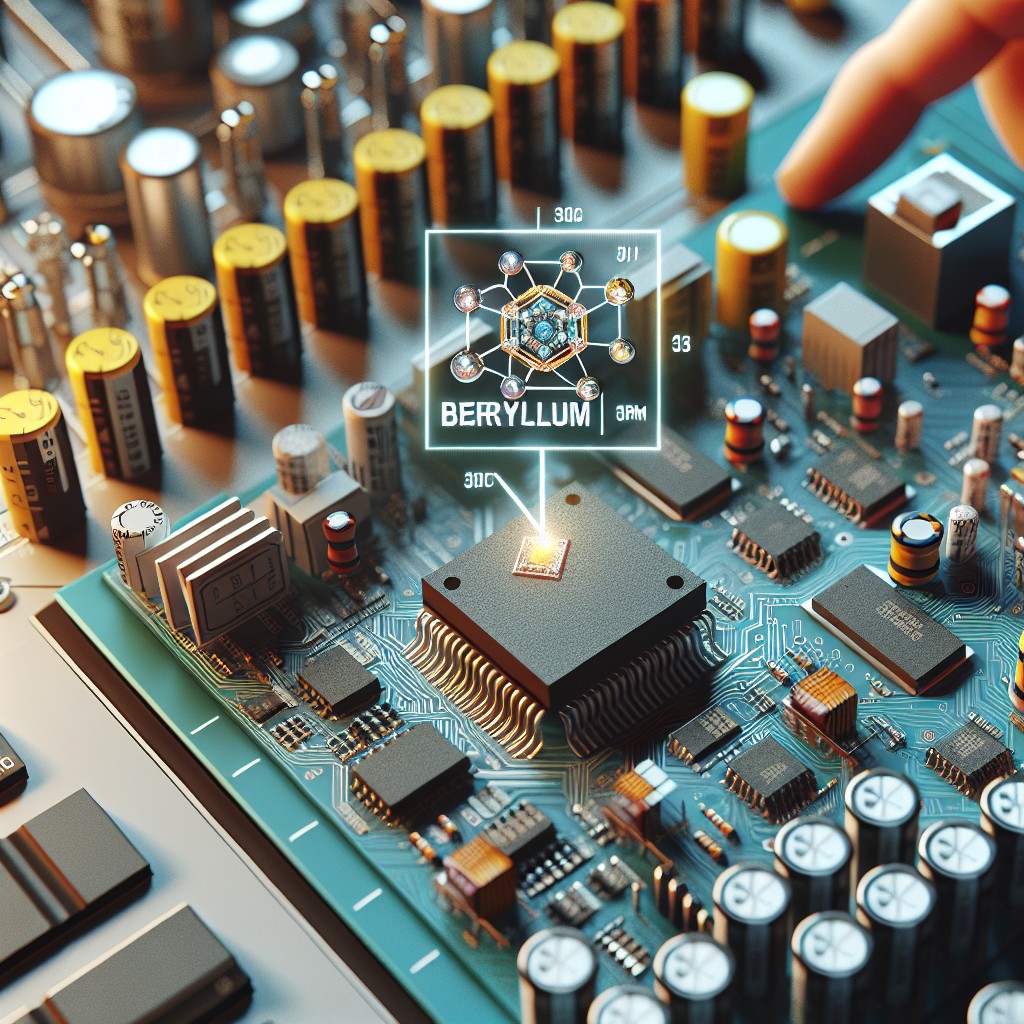Cobalt is a versatile and valuable metal that plays a crucial role in various industries in Britain. It is known for its unique properties, including its high melting point, magnetic properties, and resistance to corrosion. These properties make cobalt an essential component in the manufacturing of alloys, batteries, aerospace and defense equipment, and many other applications. In this article, we will explore the importance of cobalt in British industries, its history, physical and chemical properties, versatility in manufacturing, role in batteries, aerospace and defense, mining industry in Britain, and the future advancements in cobalt-related technologies.
Summary
- Cobalt is a chemical element with a variety of properties and uses.
- Cobalt plays a crucial role in many British industries, including aerospace, defence, and manufacturing.
- The history of cobalt dates back centuries, and it has been used in various applications throughout the years.
- Cobalt has unique physical and chemical properties that make it a versatile material for manufacturing.
- Cobalt alloys are widely used in British industries, and cobalt is a crucial component in modern-day batteries.
The Importance of Cobalt in British Industries
Cobalt is widely used in various industries in Britain due to its unique properties and versatility. One of the major industries that rely on cobalt is the automotive industry. Cobalt is used in the production of high-performance alloys for engine parts, such as pistons and valves. These alloys have excellent heat resistance and can withstand high temperatures and pressures, making them ideal for use in engines.
Another industry that heavily relies on cobalt is the aerospace industry. Cobalt alloys are used in the manufacturing of aircraft engines and turbine blades due to their high strength and resistance to corrosion. These alloys can withstand extreme conditions and provide excellent performance and reliability.
The electronics industry also benefits from cobalt’s properties. Cobalt is used in the production of magnetic materials for hard drives, speakers, and other electronic devices. It is also an essential component in rechargeable batteries, such as lithium-ion batteries, which power smartphones, laptops, electric vehicles, and other portable devices.
The History of Cobalt
Cobalt has a rich history that dates back centuries. It was first discovered by Swedish chemist Georg Brandt in 1735. Brandt was able to isolate cobalt from a blue pigment called “cobalt blue” that was used in ceramics and glassmaking. He named the element after the German word “kobold,” which means goblin or evil spirit, as miners believed that cobalt ores were poisonous and caused illness.
In the 19th century, cobalt started to find applications in various industries. It was used in the production of cobalt blue pigments for paints and dyes. Cobalt alloys were also developed during this time, and they found applications in the manufacturing of cutting tools, magnets, and other industrial equipment.
In the 20th century, cobalt’s importance grew even further with advancements in technology. It became a crucial component in the production of rechargeable batteries, such as nickel-cadmium and lithium-ion batteries. Cobalt’s magnetic properties also made it an essential material for the electronics industry.
The Physical and Chemical Properties of Cobalt
| Property | Description |
|---|---|
| Atomic Number | 27 |
| Atomic Mass | 58.933195 |
| Melting Point | 1495°C |
| Boiling Point | 2927°C |
| Density | 8.9 g/cm³ |
| Electronegativity | 1.88 |
| Crystal Structure | Hexagonal Close-Packed |
| Colour | Silver-grey |
Cobalt is a transition metal with atomic number 27 and symbol Co on the periodic table. It has a silvery-gray appearance and is relatively hard and brittle. Cobalt has a high melting point of 1,495 degrees Celsius and a boiling point of 2,870 degrees Celsius.
One of the unique properties of cobalt is its magnetic nature. It is ferromagnetic, meaning it can be magnetized and retains its magnetism even after the external magnetic field is removed. This property makes cobalt ideal for use in magnets, magnetic storage devices, and other applications that require strong magnetic fields.
Cobalt is also known for its resistance to corrosion. It forms a protective oxide layer on its surface when exposed to air, which prevents further oxidation. This property makes cobalt suitable for use in environments with high temperatures or corrosive substances.
The Versatility of Cobalt in Manufacturing
Cobalt’s unique properties make it a versatile material for various manufacturing processes. One of the main applications of cobalt is in the production of alloys. Cobalt alloys, such as Stellite and Haynes alloys, are widely used in the manufacturing of cutting tools, turbine blades, and other high-performance components. These alloys have excellent heat resistance, wear resistance, and strength, making them ideal for use in demanding applications.
Cobalt is also used in the production of superalloys, which are used in the aerospace industry. Superalloys are high-performance alloys that can withstand extreme temperatures and pressures. They are used in the manufacturing of aircraft engines, gas turbines, and other aerospace components.
In addition to alloys, cobalt is used in the production of magnets. Cobalt magnets have high magnetic strength and are used in various applications, including electric motors, generators, and magnetic resonance imaging (MRI) machines.
Cobalt Alloys

Cobalt alloys are widely used in British industries due to their excellent properties and performance. One of the most well-known cobalt alloys is Stellite. Stellite is a family of cobalt-chromium alloys that are known for their exceptional wear resistance, corrosion resistance, and high-temperature strength. These alloys are used in the manufacturing of cutting tools, valve seats, and other components that require high wear resistance.
Another popular cobalt alloy is Haynes alloy. Haynes alloys are a group of cobalt-nickel-chromium-molybdenum alloys that have excellent corrosion resistance and high-temperature strength. They are used in the aerospace industry for manufacturing turbine blades, combustion chambers, and other components that operate at high temperatures.
Cobalt-based superalloys are also widely used in the aerospace industry. These alloys have exceptional strength at high temperatures and can withstand extreme conditions. They are used in the manufacturing of aircraft engines, gas turbines, and other aerospace components that require high performance and reliability.
Cobalt in Batteries
Cobalt plays a crucial role in modern-day technology through its use in rechargeable batteries. Cobalt is a key component in lithium-ion batteries, which are used in smartphones, laptops, electric vehicles, and other portable devices. Lithium-ion batteries have high energy density, long cycle life, and fast charging capabilities, making them ideal for use in these applications.
Cobalt’s role in lithium-ion batteries is to provide stability and improve the battery’s performance. It is used in the cathode material of the battery, which is responsible for storing and releasing energy during charging and discharging cycles. Cobalt-based cathodes, such as lithium cobalt oxide (LiCoO2), have high energy density and good cycling stability.
However, the use of cobalt in batteries has raised concerns due to its limited availability and ethical concerns related to mining practices. Cobalt mining is predominantly concentrated in countries like the Democratic Republic of Congo (DRC), where there have been reports of child labor and unsafe working conditions. Efforts are being made to develop alternative cathode materials that reduce or eliminate the need for cobalt in batteries.
The Role of Cobalt in Aerospace and Defence
Cobalt plays a crucial role in the aerospace and defense industries due to its unique properties and performance. Cobalt alloys are used in the manufacturing of aircraft engines, gas turbines, and other aerospace components that require high strength, corrosion resistance, and heat resistance.
In the aerospace industry, cobalt alloys are used for manufacturing turbine blades, combustion chambers, and other components that operate at high temperatures. These alloys can withstand extreme conditions and provide excellent performance and reliability.
In the defense industry, cobalt alloys are used for manufacturing armor plates, bulletproof vests, and other protective equipment. Cobalt alloys have excellent strength and toughness, making them ideal for use in these applications.
Cobalt Mining in Britain
Cobalt mining in Britain has a long history dating back to the 18th century. The country was once a major producer of cobalt, with mines in Cornwall and Devon. However, the mining industry declined in the 20th century due to the availability of cheaper cobalt from overseas sources.
Today, Britain relies on imported cobalt to meet its demand. The majority of cobalt is mined in the Democratic Republic of Congo (DRC), which holds significant reserves of the metal. However, there have been concerns about the ethical and environmental issues associated with cobalt mining in the DRC, including child labor and unsafe working conditions.
Efforts are being made to develop sustainable and ethical sources of cobalt in Britain. This includes exploring new mining sites and developing recycling technologies to recover cobalt from end-of-life products.
The Future of Cobalt
The future of cobalt in British industries looks promising, with advancements and innovations in various sectors. In the automotive industry, there is a growing demand for electric vehicles, which rely on lithium-ion batteries that contain cobalt. As the adoption of electric vehicles increases, so will the demand for cobalt.
In the aerospace industry, there is a continuous need for high-performance materials that can withstand extreme conditions. Cobalt alloys are expected to play a crucial role in meeting these demands and improving the performance and efficiency of aircraft engines and other aerospace components.
In the battery industry, efforts are being made to reduce or eliminate the use of cobalt in lithium-ion batteries. Researchers are exploring alternative cathode materials, such as nickel-rich cathodes, that can provide similar or better performance without relying on cobalt.
Cobalt is a versatile and valuable metal that plays a crucial role in various industries in Britain. Its unique properties make it ideal for use in manufacturing alloys, batteries, aerospace and defense equipment, and many other applications. Cobalt’s importance in British industries is expected to grow in the future with advancements and innovations in technology. However, there are challenges associated with cobalt mining, including ethical and environmental concerns. Efforts are being made to develop sustainable and ethical sources of cobalt in Britain and reduce the reliance on imported cobalt. Overall, cobalt has a bright future in British industries and holds great potential for advancements and innovations.


